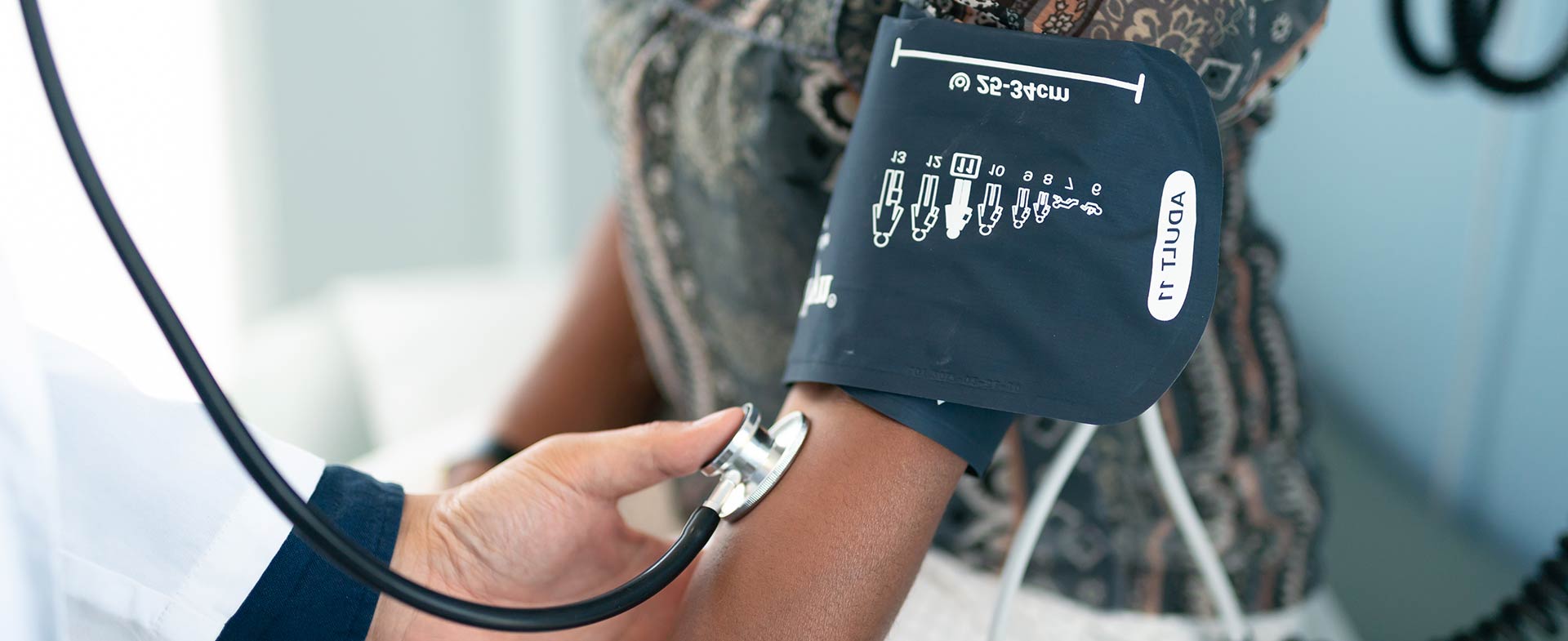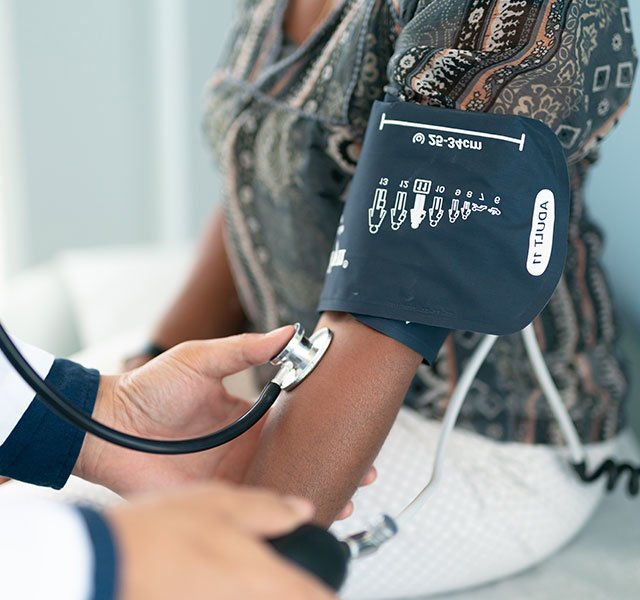Many heart conditions are rooted in how high or low your blood pressure is. Low blood pressure can often result in lightheadedness or fainting. High blood pressure on the other hand is associated with much more serious conditions such as heart failure and stroke.
To better understand how important it is to monitor and maintain healthy blood pressure levels, we had Dina Ibrahim, M.D., a family medicine doctor for Henry Ford Health, break down some of these complex ideas.
Understanding Hypertension Basics
“The blood is the life of the body,” says Dr. Ibrahim. “It carries oxygen and sugar which power all of the organs and help them to work – exactly like a battery.”
Your blood travels to all the different parts of your body through the cardiovascular system. This system starts with your heart and is connected to a huge chain of blood vessels, including arteries which carry oxygen-rich blood to your organs and veins which carry low oxygen blood back to the heart to be reoxygenated. Blood vessels are similar to a rubber band. When your heart pumps, the blood squeezes through these blood vessels. They stretch out and snap back like elastic. That snapback motion is what keeps the blood propelling forward throughout the body until it reaches all of your organs.
“The heart trying to squeeze blood through the blood vessel is like trying to squeeze a tube of toothpaste,” Dr. Ibrahim explains. “If the tube is tight, you have to squeeze very hard to only get a little bit of toothpaste.”
The same thing happens in the blood vessels. If the pressure is high because your blood vessels are tight, the heart has to work harder to move blood through the body. When this happens, it is called hypertension.
Blood pressure is measured with an inflatable cuff and a gauge that measures your systolic (the top number in the reading) and diastolic (the bottom number) blood pressure levels.
“Research shows that if your top number for your blood pressure is higher than 140 and your bottom number is higher than 90, that can cause the heart muscle to grow,” says Dr. Ibrahim. “We don’t want that heart muscle to grow because the body can’t sustain this growth for long.”
Medical Treatments To Control Hypertension
Your blood pressure, whether high, low or normal, is the result of three factors:
- Your heart pumping
- How much fluid there is to pump
- How tight your arteries are
Similarly, the medications that are used to treat hypertension do one of three things:
- Relax the heart from pumping so hard
- Allow the kidneys to let out some fluid (so there is less fluid to pump)
- Relax the arteries
Sometimes, medications will do a combination of these things. For example, your doctor may prescribe medications that allow for both your heart and arteries to relax. This can help blood flow more easily throughout your body.
Diet and Exercise To Control Hypertension
In addition to medication, eating healthy and staying active is another way to manage blood pressure. Dr. Ibrahim recommends the Dietary Approach to Stopping Hypertension (DASH) diet.
“What I like about it is that it has exact quantities (proportions) but it does gives you a full variety and wide range of food that you can eat,” says Dr. Ibrahim.
Living an active lifestyle with exercise as a priority can help relax the arteries and heart to improve your body’s ability to pump blood. If you have hypertension, you can work to control your blood pressure by exercising for 30 minutes a day, at least five days a week. Fortunately, that doesn’t mean you have to start running daily or join a gym. You can use your own body weight and you don’t even need to leave home.
“A simple exercise might be sitting in a chair and standing up as many times as you can until you get tired,” suggests Dr. Ibrahim.
You can even break it up into 10-minute periods of exercise throughout the day if that works better for you. Short walks are another great way to get started. Gradually, you can build up to more endurance to walk farther or go at faster pace.
Many people are able to control their blood pressure with diet and exercise. But it is important to be realistic. If you are doing the most you can with diet and exercise, but your blood pressure is still high, Dr. Ibrahim recommends you talk with your doctor about medication options.
“You don’t want to risk having a heart attack or stroke or end up on dialysis when it was preventable.”
To find a doctor at Henry Ford, visit henryford.com or call 1-800-HENRYFORD (436-7936).
Dr. Dina Ibrahim is a family medicine doctor who sees patients at Henry Ford Medical Center – Royal Oak.



